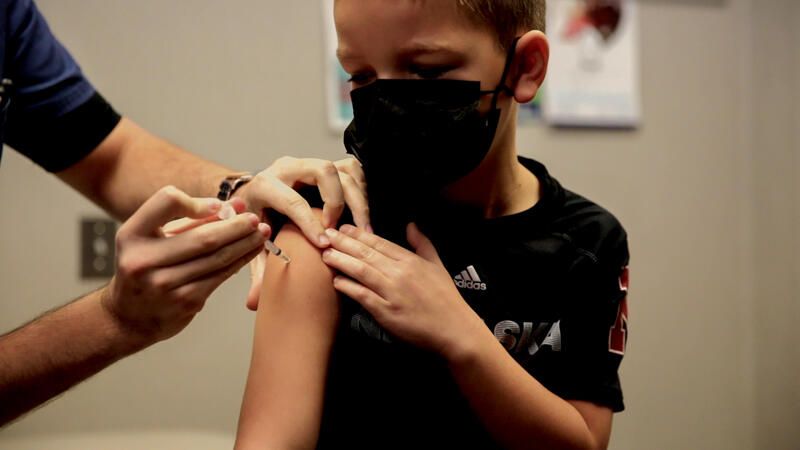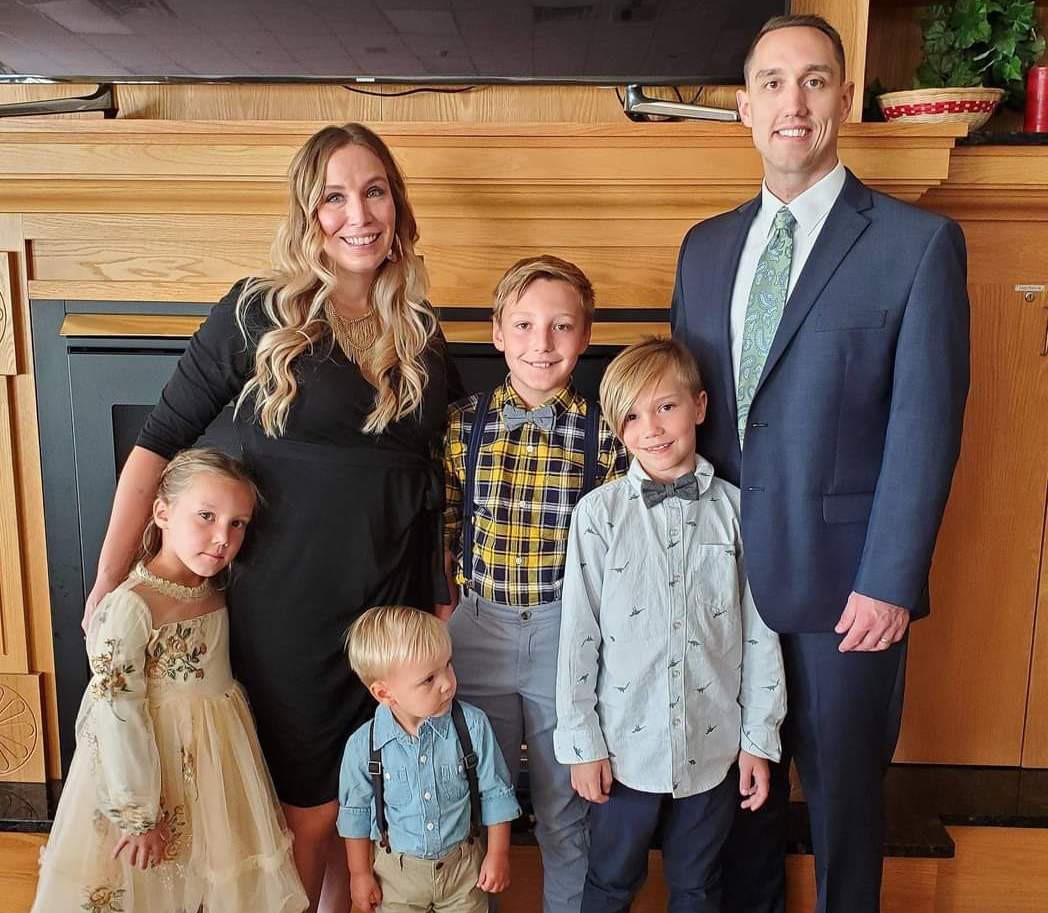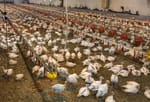Compared to other Great Plains states, South Dakota is off to a slow start in getting children ages 5-11 vaccinated against the coronavirus.
With child vaccines available for nearly a month, so far only about one in 20 eligible South Dakota children aged 5-11 has received a dose of the vaccine against the virus that causes COVID-19, according to the state Department of Health.
In an analysis of data from the U.S. Census and the federal Centers for Disease Control and Prevention, updated on Nov. 22, South Dakota had the lowest child vaccination rate of all Great Plains states.
At that time, 3.4% of eligible South Dakota children ages 5-11 had received at least one dose of the two-dose Pfizer vaccine regimen, compared to Minnesota at 14.5%, Nebraska at 9.8%, North Dakota at 6.8%, Montana at 6.1% and Wyoming at 3.7%. Rhode Island and Vermont are highest in the nation at 18% of children ages 5-11 vaccinated and Texas is lowest at 1%.
Health officials say the vaccines are safe for children and can help stop the spread of COVID-19 and development of new variants, while also reducing symptoms for those who are infected.
The CDC reported in October that scientific trials showed the Pfizer vaccine was about 91% effective in preventing COVID-19 in children ages 5-11, about the same protection rate as adults. The federal government made about 30,000 child vaccine doses available to South Dakota medical providers in early November. Reports of side effects have been minimal, with a sore arm at the injection site the most common.
Yet many South Dakota parents remain hesitant as they weigh vaccine concerns against concerns about the harmful effects of the virus itself.
The top reasons South Dakota parents are deciding not to vaccinate their children include concerns about side effects, lack of trust in the government, uncertainty if their children need it at all, and a desire to wait and see if it is proven safe, according to a QuoteWizard analysis using data from a U.S. Census Bureau survey.

But health officials statewide want parents to know the vaccine is safe, that it prevents hospitalization and death due to the virus, and that it has been tested and proven to be safe.
“COVID is here; COVID is real,” said Dr. Kara Bruning, clinical lead for pediatrics at Avera Health. “It is definitely going around our communities, and we need to keep our kids safe now.”
While South Dakota hit its peak for COVID-19 cases in November 2020, the virus and the newer Delta variant remain a major concern for health officials, including positive cases among children. As of late November 2021, about 9,250 cases of COVID-19 have been confirmed in children nine and under (about 6.6% of all cases), while 19,900 cases have been reported in people ages 10-19 (about 14.2% of all cases.) No deaths have been reported in those age groups, though dozens of hospitalizations have been reported.
Outbreaks are still occurring in South Dakota schools, including at Grandview Elementary School in Rapid City, where 50 confirmed cases among students and staff led to a temporary shift to remote learning in late October.
Vaccines were given emergency approval for adults late last year and have been widely available since the spring, but until recently, children under 12 were not eligible.
That changed in late October, when the U.S. Food & Drug Administration FDA and the Centers for Disease Control and Prevention authorized the Pfizer-BioNTech pediatric vaccine for children aged 5 to 11.
The pediatric vaccine has a lower dosage than that used for adults and teens, and like the full-dose vaccine, it is administered as two doses given three weeks apart.
So far, more than 34,000 children under age 18 have received at least one dose of the COVID-19 vaccine in South Dakota.
The South Dakota health department dashboard shows that as of Nov. 22, 7,156 children ages 5-11 had been vaccinated, roughly 5% of those eligible. That compares to 18,480 youths ages 12-15, or 38% of those eligible, being vaccinated and 9,542 youths ages 16-17, or 43% of those eligible now vaccinated.
Adults overall have a higher vaccination rate, and the older a person gets, the more likely they are to be vaccinated, according to state data. As a whole, about 70 percent of South Dakotans 12 and over have had at least one dose of a COVID-19 vaccine, according to state data.

News Watch heard from more than a dozen parents across the state about their decision on whether to have their children vaccinated, and a common theme from parents regardless of their conclusion was a desire to do what they feel is best for their children.
It is also clear that parents are not taking decisions about their children’s health lightly, and the COVID-19 vaccine has become a heated and emotional topic for some, whether they decide to vaccinate or not.
Katie Martin described a number of factors that went into the decision by her and her husband not to vaccinate their two young sons.
Martin, who relocated to Rapid City last fall due to her husband’s job in the U.S. Air Force, weighed the low death rate for children who contract COVID-19 and the likelihood of some natural immunity since her entire family had the virus last winter. Ultimately, she was greatly concerned about the newness of the vaccine.
Her children have received all other pediatric vaccines, and they got flu shots this year.
Her husband received his vaccine in February, but for the rest of the family, it’s a “wait and see” approach, she said, adding that her pediatrician did not insist on her kids getting the shot, either.
“For us, COVID-19 is just not something that affects children enough to risk an unknown vaccine,” Martin said.

Sioux Falls parents Renee and Ben Forred said they plan to vaccinate their three children who are now eligible. Their reasoning comes, in part, from Ben Forred’s career working in biomedical research and his understanding of how clinical trials work and the way scientists ensure safety of medications and vaccinations.
“I can completely understand people’s reluctance and hesitancy,” he said. “But when I’ve had friends and family talk to me, I’ve just always been telling them to avoid that piece of advice to ‘go out and do your own research’ when there are people who have dedicated their careers to doing this. Find a doctor. Find an expert who can give you their input.”
From a more practical standpoint, Renee Forred said the family is just hoping to avoid any more illness and quarantining. Their whole family had COVID-19 over the past month, and having children home sick from school while also juggling careers, household care and parenting tasks was stressful.
“I think the main thing is we all want this to be done, and we should do whatever we can to protect our families,” she said.
Doctors recognize that many parents have questions and concerns about the COVID-19 vaccine for children, but they also want parents to know the vaccine is tested and proven safe.
In the days after the pediatric dosage of the vaccine was approved, more than 200 pediatricians in both North Dakota and South Dakota signed onto a letter strongly encouraging parents to vaccinate their children.
“The COVID-19 vaccine is safe for children,” the letter reads. “This vaccine has undergone rigorous testing and in-depth studies to ensure safety and effective protection against COVID-19 infection.”
The letter goes on to state that the vaccine is “very good” at preventing infections, “excellent” at preventing severe infections and “outstanding at preventing COVID-19 deaths.”
“To us, even one child dying from a vaccine-preventable illness such as COVID-19 is one too many,” it reads.
Dr. Santiago Lopez, a pediatric infectious disease specialist with Sanford Health, was one of the doctors who helped write the letter. He said he as seen no “red flags” in regard to side effects among children who’ve received the vaccine both on a local and national scale.
Lopez also noted that more than 2 million children have gotten at least one dose nationally, and he hopes as more families see kids getting vaccinated without any issues, they’ll feel more confident vaccinating their children as well.
At Avera Health, Bruning said the medical community must also educate parents on the risks to children who are unvaccinated.

In the U.S., thousands of children have been hospitalized with the virus, Bruning said, and CDC data shows the rate of hospitalization increased tenfold with the rise of the Delta variant. Additionally, children are also at risk of developing “long covid,” even if they have mild symptoms.
Another risk to children is multisystem inflammatory syndrome, a rare but dangerous disease that arises in children as a complication from COVID-19.
“These kids come in in shock,” Bruning said. “They come in to the ICU with heart, kidney and liver problems … some of them get put on a ventilator. Some of them have heart problems. If we can prevent it by giving a vaccine, that’s definitely the way to go.”
Parents are urged to discuss the decision of whether or not to vaccinate their children with their pediatrician. The state also offers vaccine information, including facts debunking common myths surrounding the vaccine, at the health department website, covid.sd.gov. That website can also direct people to find a vaccine provider near them.



